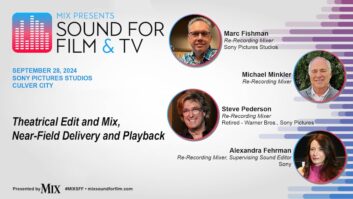New York, NY (September 12, 2024)—Well, it had to happen sooner or later… AI-generated “art” being used to scam money out of the music industry. According to an article appearing last week in The New York Times, Michael Smith of North Carolina was arrested by the FBI for allegedly scamming music streaming services out of more than $10 million in royalties. The platforms from which Smith scammed the money include Spotify, Apple Music and Amazon Music.
Here’s how the scam went down:
First, Smith used artificial intelligence to generate a library of thousands of fake songs performed by fake artists. (Why waste time trying to write a song when AI can do it for you?) Then he created thousands of fake “bot” accounts on the streaming services and used automated software through which these accounts used different computers to continuously stream the songs he “wrote” using AI. Smith tallied up billions of streams (more than 600,000 per day at one point, he estimated) over a period of seven years, and at one point was reportedly earning more than $110,000 per month. That’s a lot of scratch.
Smith was pretty smart about it—at least until he got caught. He knew that if a single song were streamed say, a billion times, streaming services would be able to detect fraud. Distributing the streams across thousands of songs made the fraudulent activity more difficult to detect; hence, his need for the vast number of “songs.” He had randomly created song and artist names for the audio files so it would appear as if the music was generated by real artists.
Brilliant and, of course, illegal.
It’s tough to feel sympathy for Spotify (or any of these streaming services for that matter) in light of the insulting royalty payments artists receive these days when compared to what they were getting from plays on terrestrial radio. Why do you think artists like Bruce Springsteen, Justin Bieber, the Beach Boys and Neil Young sold all or parts of their catalogs? They’ve seen the writing on their royalty checks, and it’s shrinking. Get the cash while you can. And consumers get to hear classic songs being used to hawk drugs for weight loss and a host of other ailments. It turns my stomach.
I don’t applaud Smith’s actions. One could argue that he diverted money that could have been paid to real artists who write real songs, but the counter-argument would be that these streams would never exist in the first place had Smith not created them. Smith’s actions will undoubtedly shake up the infrastructure of the streaming services, but I doubt the shake-up will make it any easier for smaller artists to see any revenue for their work.
In the meantime, Mr. Smith and his accomplices will be looking at charges of wire fraud conspiracy, wire fraud, and money laundering conspiracy. He might be wishing that he could generate an AI of himself to do the time.







